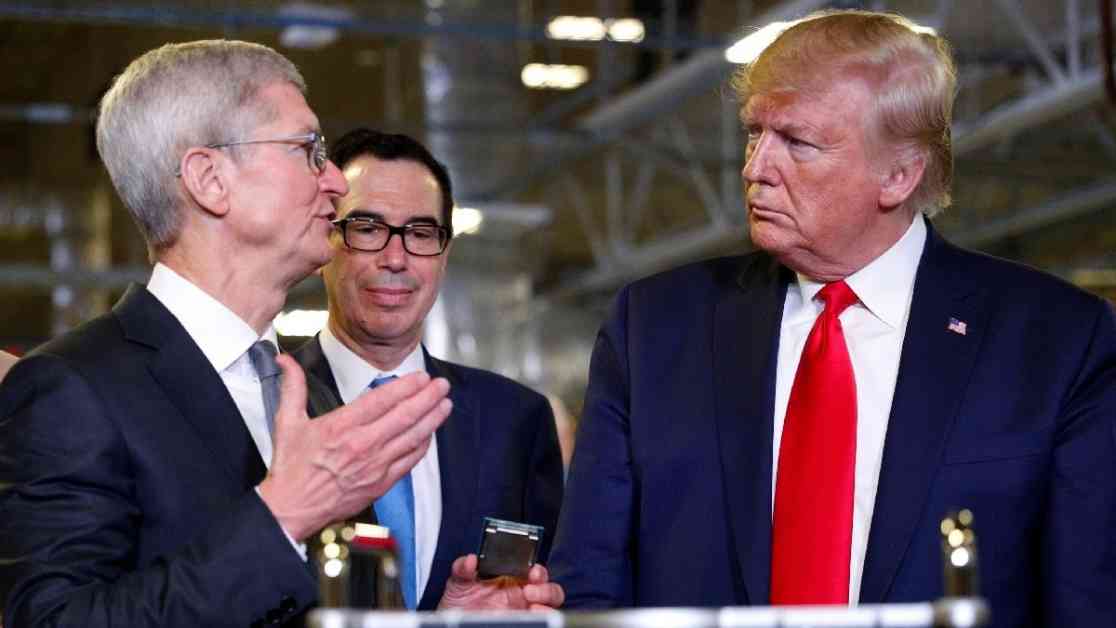Apple, led by Tim Cook, has been mulling over the idea of moving iPhone production to India due to tariffs imposed by President Trump on China. This move has sparked some tension with Trump, who made his expectations clear on Truth Social. He emphasized that iPhones for the U.S. market should be made within the country’s borders, not in India or elsewhere. In response, Apple’s shares dipped over 2% in premarket trading, showing the impact of this shift in manufacturing operations.
The majority of Apple’s flagship phone production currently happens in China, but the company has started to transition some manufacturing operations to India. This decision was influenced by India’s favorable trade relationship with the U.S. Approximately 90% of Apple’s iPhone production and assembly is still based in China, as estimated by Wedbush Securities. Reports suggest that moving iPhone production to the U.S. could lead to a 25% price hike for the device, with analysts projecting a potential retail price of $3,500 for a U.S.-made iPhone compared to the current $1,000 price tag for the iPhone 16 Pro.
President Trump’s pressure on Apple and Tim Cook to increase manufacturing operations within the U.S. has been building up, culminating in a recent meeting at the White House to address the issue. The potential impact of this manufacturing shift on the market and consumers remains to be seen, with uncertainties surrounding the future pricing and availability of iPhones. The dynamics between global trade policies, corporate decisions, and consumer demand are all coming into play in this evolving situation. Despite the challenges and implications, Apple seems to be navigating these waters with a strategic eye on maintaining its market position and meeting the demands of both the U.S. government and consumers.























